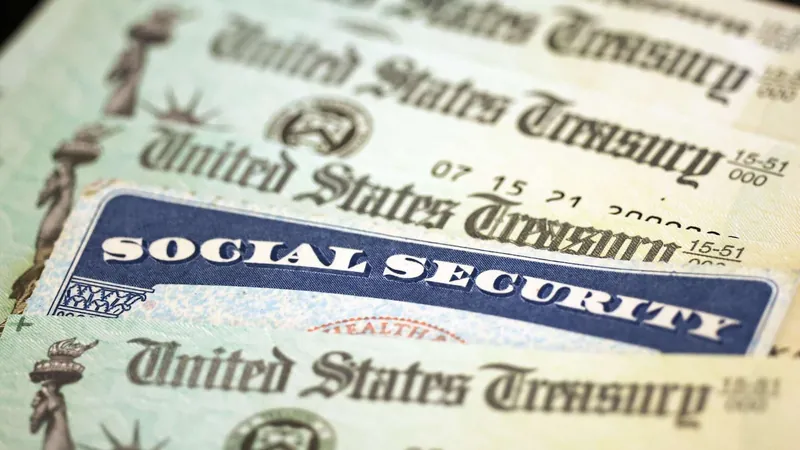
Hong Kong's Groundbreaking Stablecoins Bill Paves the Way for Future Expansion
2024-12-09
Author: Yan
Introduction
On December 18, the Hong Kong government will take a significant step forward in the cryptocurrency landscape with the first reading of its Stablecoins Bill, officially published in the Gazette on Friday. This pioneering legislation primarily targets fiat-referenced stablecoins, which are digital currencies pegged to traditional fiat currencies like the Hong Kong dollar (HKD).
Regulatory Framework
Eddie Yue, CEO of the Hong Kong Monetary Authority (HKMA), emphasized the importance of this regulatory framework, stating, "We have undertaken extensive consultations and given due consideration to the views of the industry when formulating the details of the regulatory regime. We believe that a well-regulated environment is conducive to the sustainable and responsible development of the stablecoin ecosystem in Hong Kong."
Scope of the Bill
The bill applies to stablecoin issuers based in Hong Kong, including those pegged to HKD or marketed to the public. However, some industry experts note potential ambiguities regarding the criteria for marketing, suggesting the wording could be interpreted in various ways.
Flexibility for Future Expansion
One of the most significant aspects of this legislation is its flexibility for future expansion. Alongside the existing categories of regulated activities, the regulators have the authority to add more criteria if they deem that stablecoin issuance could impact financial stability or the region's status as a financial center.
Key Requirements for Stablecoin Issuers
The legislation outlines several essential requirements for stablecoin issuers. They must maintain segregated reserve assets that correspond to the currency of the stablecoin, although the bill does not specify the exact types of assets that qualify, only that they must be of high quality, high liquidity, and carry minimal investment risks. This aspect of reserve attestations has been a topic of much discussion, and while the bill mentions these attestations, it remains vague about their frequency.
A minimum capital requirement of HK$25 million (approximately $3.2 million) has also been established for issuers to enter the market, ensuring a level of financial stability and security.
The Marketing Gatekeeper Clause
A point of contention in the bill revolves around the regulations regarding the public marketing of stablecoins. Critics of the legislation argue that it could potentially apply to any stablecoin—domestic or foreign—regardless of whether it is actively marketed in Hong Kong. The critical passage highlights the ambiguity of the term "public," leading to speculation over its jurisdictional implications.
For instance, if a stablecoin like Tether were to be issued in Hong Kong, it would fall under the purview of this legislation. However, its current status and marketing approach outside Hong Kong might add layers of complexity to its regulatory compliance.
Failing to comply with the regulations could result in severe penalties, including a seven-year prison sentence for serious offenses along with fines that could reach up to $5 million, plus an additional $100,000 for each day of the ongoing violation.
Conclusion
The introduction of the Stablecoins Bill positions Hong Kong as a forward-thinking leader in the cryptocurrency sector, aiming to establish a robust framework for the responsible development of stablecoins. While the bill still has room for clarification and adjustment, its very existence signifies a growing recognition of the potential influence of digital currencies in the global economic landscape.
As markets around the world increasingly turn their attention toward cryptocurrencies, the implications of this legislation could reverberate beyond Hong Kong, influencing regulatory approaches in other jurisdictions that are grappling with the rise of stablecoins and their impact on financial systems.
Could Hong Kong soon become the global hub for stablecoins? Only time will tell, but the stage is set for a fascinating evolution in digital currency regulation. Stay tuned!




 Brasil (PT)
Brasil (PT)
 Canada (EN)
Canada (EN)
 Chile (ES)
Chile (ES)
 España (ES)
España (ES)
 France (FR)
France (FR)
 Hong Kong (EN)
Hong Kong (EN)
 Italia (IT)
Italia (IT)
 日本 (JA)
日本 (JA)
 Magyarország (HU)
Magyarország (HU)
 Norge (NO)
Norge (NO)
 Polska (PL)
Polska (PL)
 Schweiz (DE)
Schweiz (DE)
 Singapore (EN)
Singapore (EN)
 Sverige (SV)
Sverige (SV)
 Suomi (FI)
Suomi (FI)
 Türkiye (TR)
Türkiye (TR)